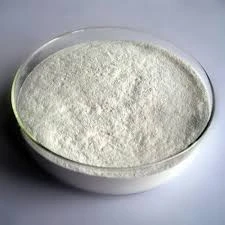
Dec . 12, 2024 11:31 Back to list
hydroxyalkyl cellulose
Hydroxyalkyl Cellulose A Versatile Polymer for Modern Applications
Hydroxyalkyl cellulose (HAC) is a non-ionic, water-soluble polymer derived from cellulose, which itself is one of the most abundant natural polymers found in plants. The modifications in hydroxyalkyl cellulose structures enhance its functional properties, making it a crucial ingredient in various industries, including pharmaceuticals, cosmetics, food, and construction. This article explores the characteristics, synthesis, applications, and advantages of hydroxyalkyl cellulose.
Characteristics and Synthesis
Hydroxyalkyl cellulose is created through the etherification of cellulose with alkylene oxides such as ethylene oxide or propylene oxide. This process introduces hydroxyalkyl groups into the cellulose structure, significantly altering its solubility and rheological properties. The degree of substitution—the number of substituents introduced per glucose unit in cellulose—dictates the characteristics of the resulting hydroxyalkyl cellulose. For instance, higher degrees of substitution usually lead to greater solubility in water and improved thickening abilities.
The resulting polymer is a white, odorless powder that is soluble in cold water, forming a viscous gel upon dissolving. The viscosity can be tailored by adjusting the degree of substitution and the molecular weight of the cellulose, allowing for customized solutions for specific applications. Additionally, hydroxyalkyl cellulose is stable at various pH levels and can withstand a range of temperatures, making it a suitable candidate for multiple formulations.
Applications in Various Industries
1. Pharmaceuticals In the pharmaceutical industry, hydroxyalkyl cellulose is commonly used as a thickening agent, binder, and stabilizer in various formulations, including tablets, topical ointments, and liquid preparations. Its ability to form gels at low concentrations makes it valuable in controlled drug delivery systems, ensuring that medications are released in a sustained manner.
2. Cosmetics and Personal Care HAC is prized in cosmetics for its texture-enhancing properties. It serves as an emulsifier, stabilizing creams and lotions, and improves the sensory feel of products. Its water-retaining ability helps in moisturizing formulations, making it a prevalent ingredient in skin care products. Furthermore, it acts as a thickening agent in shampoos and conditioners.
hydroxyalkyl cellulose

3. Food Industry In the food sector, hydroxyalkyl cellulose is employed as a thickener, stabilizer, and emulsifier. It enhances the texture and mouthfeel of food products and is particularly beneficial in gluten-free formulations, helping to improve dough consistency. HAC is also used in sauces, dressings, and dairy products, where it aids in maintaining desirable viscosity and quality.
4. Construction The construction industry utilizes hydroxyalkyl cellulose as an additive in mortars, plasters, and tile adhesives. It improves workability, enhances adhesion, and increases water retention, making it easier to apply and ensuring that materials set correctly. The use of HAC can also prolong the open time of adhesives, allowing for adjustments during application.
Advantages of Hydroxyalkyl Cellulose
Hydroxyalkyl cellulose offers numerous advantages across different industries. Its non-toxic nature and compatibility with various ingredients make it an ideal additive in sensitive applications such as pharmaceuticals and personal care. Furthermore, its renewability, being derived from cellulose, makes it an environmentally friendly option compared to synthetic polymers.
The customizable properties of hydroxyalkyl cellulose allow formulators to design products that meet specific performance criteria, making it a versatile addition to formulations. Its effective thickening and stabilizing capabilities contribute to enhanced product quality, ultimately benefiting both manufacturers and consumers.
Conclusion
In conclusion, hydroxyalkyl cellulose is a remarkable polymer with diverse applications across multiple industries. Its unique properties, combined with its customizable nature, make it an essential ingredient for modern formulations ranging from pharmaceuticals to personal care products and construction materials. As industries continue to innovate and seek sustainable solutions, hydroxyalkyl cellulose will undoubtedly play a pivotal role in shaping future products and technologies. With ongoing research and development, the full potential of this versatile polymer is yet to be realized, promising exciting advancements in its utilization.
-
Versatile Hpmc Uses in Different Industries
NewsJun.19,2025
-
Redispersible Powder's Role in Enhancing Durability of Construction Products
NewsJun.19,2025
-
Hydroxyethyl Cellulose Applications Driving Green Industrial Processes
NewsJun.19,2025
-
Exploring Different Redispersible Polymer Powder
NewsJun.19,2025
-
Choosing the Right Mortar Bonding Agent
NewsJun.19,2025
-
Applications and Significance of China Hpmc in Modern Industries
NewsJun.19,2025







